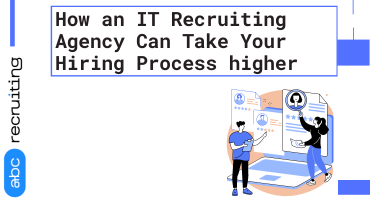So you run an executive search firm and want to boost your recruiting strategy. Finding top talent is tough in today's competitive market, especially for senior roles. Candidates have lots of options and companies are fighting over the best people. You need an edge to fill positions quickly and keep your clients happy. The good news is, with the right executive search strategy you can gain that competitive advantage. This article will walk you through some insider tips to revamp your process, tap into new talent pools, and make the perfect match between candidate and company. By the end, you'll have actionable ways to strengthen your search strategy, build a robust pipeline of candidates, and become a go-to partner for hiring at the leadership level.
Define Your Ideal Executive Candidate Profile
To find the best executive talent, you need to first determine what you're looking for. Gather input from key stakeholders to outline the essential qualifications, competencies, and attributes for the role. These could include:
- Technical expertise and experience in the relevant industry or field. For an IT executive role, for example, you may want 5-10 years of experience leading software engineering teams.
- Leadership abilities like strong communication skills, the ability to motivate and develop teams, and a track record of improving business performance.
- Cultural fit factors such as embracing diversity and inclusion, collaborating cross-functionally, or supporting a fast-paced, innovative environment.
With a well-defined candidate profile in hand, you'll be equipped to source and evaluate executive talent that has the ideal combination of professional credentials, leadership competencies, and organizational fit to drive success in the position. Keep an open mind, though, as the best candidates may come from unexpected places. The key is finding those with transferable skills and a passion for the work.
Developing a comprehensive understanding of what you need will make the search process targeted and efficient. Take the time to get this right, and you'll find executives poised to take your organization to the next level.
Make Your Executive Search Strategy to Source Passive Candidates
As an executive search firm, tapping into your professional network is key to identifying top talent. Many of the best candidates aren’t actively looking for new roles, so a targeted outreach executive search strategy is critical for sourcing these passive candidates.
Reaching out to former colleagues, clients, and candidates can uncover individuals who may be open to hearing about new opportunities, even if they’re not officially on the job market. Personalized, relationship-based recruiting is often the most effective. Look for people with a proven track record of success and leadership in your industry.
Don’t forget to leverage your company’s databases and candidate pools. Review profiles of outstanding people you’ve placed or worked with in the past. They may know other high-caliber professionals in their network who could be a great fit for current executive openings.
Connecting with people through social media platforms like LinkedIn is another way to source passive candidates. Look for those with relevant skills, experience, and career progression. Reach out by sending a quick message expressing your interest in learning more about their background and career goals to determine if there could be a match with any leadership roles you’re recruiting for.
Casting a wide net through diverse sourcing strategies will help you identify the best executive talent, even when they’re not actively searching. Building genuine relationships and maintaining an ongoing dialog with professionals in your industry is the most effective approach for recruiting top leaders. Keeping these connections strong will lead to shortlists of exceptional candidates for future opportunities as well.
Manage Candidate Expectations Around Process and Timeline
As an executive search firm, it’s crucial to properly manage candidate expectations around your process and timeline. Being upfront and transparent about what they can expect at each stage will lead to a better experience for candidates and ultimately, a higher success rate in filling positions.
Clarify Next Steps
After an initial screening call, let the candidate know specifically what the next steps in the process will be. Will you be moving them forward to meet with members of the search committee? Conducting additional phone screens or assessments? Be clear on timeframes for when they can expect to hear back from you regarding next steps. The less ambiguity, the better.
Share Timeline
Provide the candidate with an estimated timeline for the overall search and hiring process. Let them know that timelines can shift depending on the needs of the client, but giving them a general sense of the expected duration and milestones will allow them to plan accordingly. For example, “We expect the search process to last 6-8 weeks from start to finish, including multiple rounds of interviews and client meetings.”
Discuss Interview Details
Before any interviews, review details with the candidate including who they will be meeting with, interview formats, and tips for preparation. For early stage phone screens, give guidance on the types of questions to expect. For in-person interviews, provide an agenda, details on who will be in attendance, and suggestions for pre-interview research. The more informed candidates feel going into interviews, the more confident and prepared they will be.
Update Regularly
Provide regular updates to candidates on the status of the search, even if there are no substantial updates to share. Letting them know the search is still active and ongoing will prevent feelings of being left in the dark. Updates may be as simple as “We have completed initial phone screens and are working to schedule first round interviews for select candidates. We will be in touch regarding the status of your candidacy by [date].” Keeping open lines of communication will lead to a positive candidate experience.
Create a Winning Executive Search Strategy
So there you have it, some insider tips to help your executive search firm develop a winning strategy. Finding the best leaders is challenging, but with the right process and mindset, you can gain a competitive advantage. Focus on building real relationships, understand your candidates and clients deeply, use data and metrics wisely but don't rely on them entirely, and make sure your team is motivated and engaged. If you follow these principles, you'll make smarter hires, keep your clients coming back, and build a reputation for excellence. Who knows, you might even have a little fun along the way! The war for talent is fierce, but with the right executive search strategy, you can win the battle.




